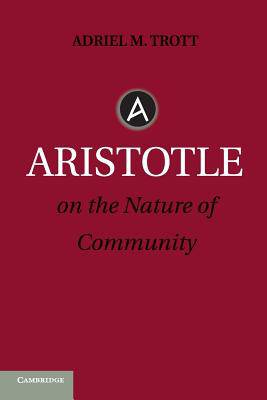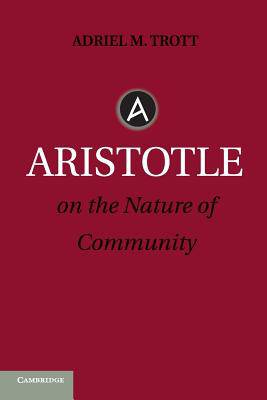
- Afhalen na 1 uur in een winkel met voorraad
- Gratis thuislevering in België vanaf € 30
- Ruim aanbod met 7 miljoen producten
- Afhalen na 1 uur in een winkel met voorraad
- Gratis thuislevering in België vanaf € 30
- Ruim aanbod met 7 miljoen producten
Zoeken
€ 60,95
+ 121 punten
Uitvoering
Omschrijving
This reading of Aristotle's Politics builds on the insight that the history of political philosophy is a series of configurations of nature and reason. Aristotle's conceptualization of nature is unique because it is not opposed to or subordinated to reason. Adriel M. Trott uses Aristotle's definition of nature as an internal source of movement to argue that he viewed community as something that arises from the activity that forms it rather than being a form imposed on individuals. Using these definitions, Trott develops readings of Aristotle's four arguments for the naturalness of the polis, interprets deliberation and the constitution in Politics as the form and final causes of the polis, and reconsiders Aristotle's treatment of slaves and women. Trott then argues that Aristotle is relevant for contemporary efforts to improve and encourage genuine democratic practices.
Specificaties
Betrokkenen
- Auteur(s):
- Uitgeverij:
Inhoud
- Aantal bladzijden:
- 253
- Taal:
- Engels
Eigenschappen
- Productcode (EAN):
- 9781316625491
- Verschijningsdatum:
- 22/08/2019
- Uitvoering:
- Paperback
- Formaat:
- Trade paperback (VS)
- Afmetingen:
- 152 mm x 229 mm
- Gewicht:
- 344 g

Alleen bij Standaard Boekhandel
+ 121 punten op je klantenkaart van Standaard Boekhandel
Beoordelingen
We publiceren alleen reviews die voldoen aan de voorwaarden voor reviews. Bekijk onze voorwaarden voor reviews.











